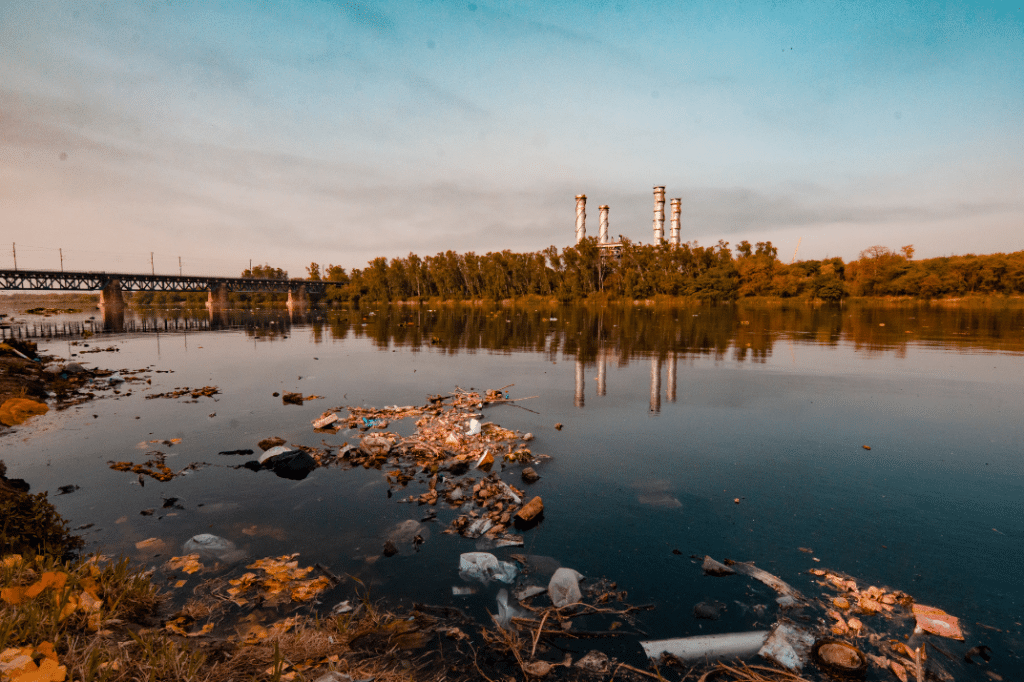Groundwater, although hidden deep underground, supports the drinking water needs of about 50 percent of the world’s population and is an important source of water for agriculture, industry and ecosystems. However, groundwater is not insulated from pollution – once contaminated, it can be extremely costly and time-consuming to treat. So how exactly does groundwater become contaminated?
What is groundwater?
Groundwater is water stored in rock or soil below the surface of the earth, mainly from rainfall, infiltration of rivers and lakes, and artificial irrigation and other recharge. When rainwater or surface water infiltrates through soil, gravel, cracks, etc., it accumulates in the pores or fissures of the ground, forming a groundwater system.

Characterization of Groundwater
- Widespread distribution
Groundwater exists in almost all land areas where precipitation occurs, and it is an important component of global freshwater resources. - Concealed
Groundwater is not as visible to the naked eye as rivers and lakes, and usually requires drilling or observation wells to survey and extract. - Slow-moving
Groundwater usually flows very slowly through soil and rock, perhaps only a few meters or tens of meters/year.
Classification of Groundwater
Shallow groundwater (submersible)
Close to surface, vulnerable to contamination.
Usually accessed through shallow wells.
Deep groundwater (pressurized water)
Deeply buried, located between impermeable layers.
Better water quality, stable mineralization, suitable for drinking.
Groundwater Contaminants
Groundwater, although buried beneath the surface, is not an absolutely safe source of water. Various surface activities and human behaviors can lead to groundwater contamination. Once contamination occurs, the cost of treating groundwater is much higher than that of surface water because of its slow flow rate and difficulty in purification.
- Nitrate pollution
- Heavy metal pollution (e.g., lead, arsenic, chromium, cadmium)
- Bacterial and pathogen contamination (e.g., E. coli, Salmonella)
- Organic pollutants (VOC, pesticides, solvents, etc.)
- Excess Salt/Chloride (groundwater salinization)
- Radioactive elements (e.g. radon, radium, uranium)

How to monitor ? – Apure’s Solution
Under the background of increasingly serious groundwater pollution, how to timely and accurately monitor groundwater quality has become an important task for water management, industrial enterprises and environmental protection organizations. As a professional manufacturer of water quality monitoring equipment, Apure provides a complete set of intelligent solutions for groundwater monitoring, helping customers to realize “early detection, early warning, early treatment”.
Multi-Parameter Groundwater Probe
| Parameter | Description |
|---|---|
| pH | Indicates the acidity or alkalinity of groundwater; fluctuations may signal chemical contamination or acid rain impact. |
| Conductivity (EC) | Measures the concentration of dissolved salts in groundwater; a key indicator of pollution level. |
| Dissolved Oxygen (DO) | Reflects whether the groundwater is in an aerobic environment, helping assess its biodegradation potential. |
| Oxidation-Reduction Potential (ORP) | Indicates the oxidizing or reducing properties of groundwater, useful for detecting heavy metals or organic pollutants. |
| Temperature | Affects chemical reactions and biological activity in groundwater; critical for interpreting other parameters. |
Table of Multi-parameter Groundwater Probe
On-line Water Quality Analysis System
The online water quality analysis system is an integrated water quality monitoring solution that combines sensors, data collectors, and controller/PLD units to enable real-time, continuous monitoring of water quality parameters. The system eliminates the need for manual sampling and is widely used in the fields of water treatment, environmental protection, industrial process control, etc. to realize automation and intelligent decision support.

How can groundwater pollution be prevented?
- Managing waste
- Protecting water sources
- Promote green agriculture
- implement water quality monitoring and use Apure online monitoring system to monitor pH, conductivity, nitrate and other indicators in real time
Summary
Groundwater pollution is often invisible but carries long-term risks to public health and ecosystems. Effective prevention combines waste control, source protection, infrastructure maintenance, and continuous monitoring.
Apure is a professional manufacturer specializing in water quality monitoring and process control, dedicated to providing accurate and efficient water treatment measurement solutions for various industries. Our products cover water quality sensors, flow meters, level measurement, pressure and ozone generators, which are widely used in municipal, industrial, environmental protection, agriculture, aquaculture and other fields. Whether you are facing complex water quality analysis, or on-site measurement and control problems, welcome to contact us for more professional water treatment solutions.
